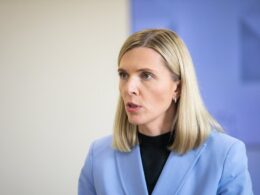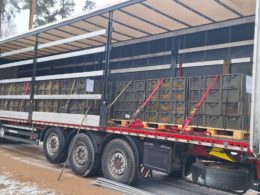Lithuanian President Gitanas Nausėda has called for NATO to respond to North Korea's military assistance to Russia in its war against Ukraine, outlining three specific measures for the alliance's response: long-range missile supplies, permission to strike military targets in Russia, and increased military aid, NV reports.
South Korean intelligence previously claimed that North Korea had already sent 3,000 military personnel to Russia out of a promised 10,000. According to Ukrainian intelligence, Russia was expected to deploy the first North Korean troops in combat zones on 27-28 October.
According to Nausėda's post on X, NATO should provide Ukraine with long-range missiles and permit strikes on military targets within Russian territory. The Lithuanian president emphasized that "Hesitation leads to escalation, not the other way around."
This call comes amid growing concerns about North Korean military involvement in Russia's war. Ukraine's military intelligence chief Kyrylo Budanov reported on 18 October that nearly 11,000 North Korean soldiers are currently training in eastern Russia for deployment against Ukraine.
Ukrainian President Volodymyr Zelenskyy has indicated that Ukraine possesses information about two North Korean military units being prepared, potentially comprising two brigades of 6,000 troops each.
A South Korean delegation will visit Ukraine this week to exchange intelligence and discuss cooperation.
Related:
- South Korea to send delegation to Ukraine this week over North Korean troop presence
- Ukraine to help Lithuania build RDX explosives factory
- Kim Jong-un sends his elite forces to Ukraine -“too valuable to be cannon fodder,” says former US diplomat
- NATO confirms presence of North Korean soldiers in Russia’s Kursk Oblast
- WSJ: North Korea sends young, inexperienced, malnourished soldiers to Russia to test ground in Ukraine as “mere cannon fodder”
- South Korean delegation to brief NATO on North Korean troops in Russia
- Zelenskyy: Ukraine will have to fight in Europe against North Korea
- Lithuania to send its domestically produced combat drones to Ukraine by end of year
- Vilnius seizes Russian military camo materials cargo, reroutes to Ukraine





